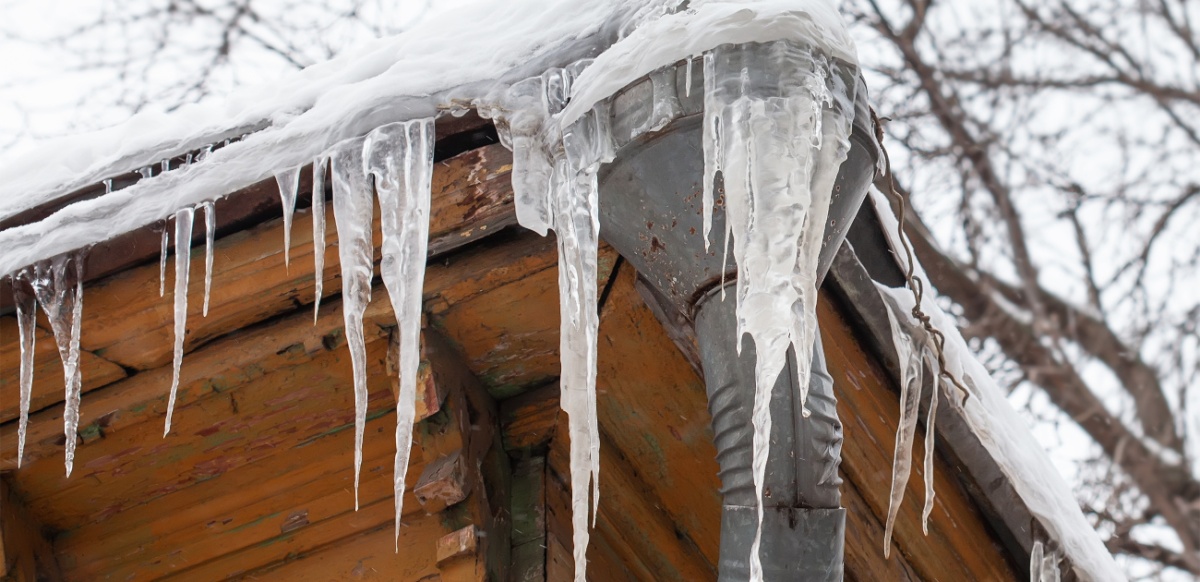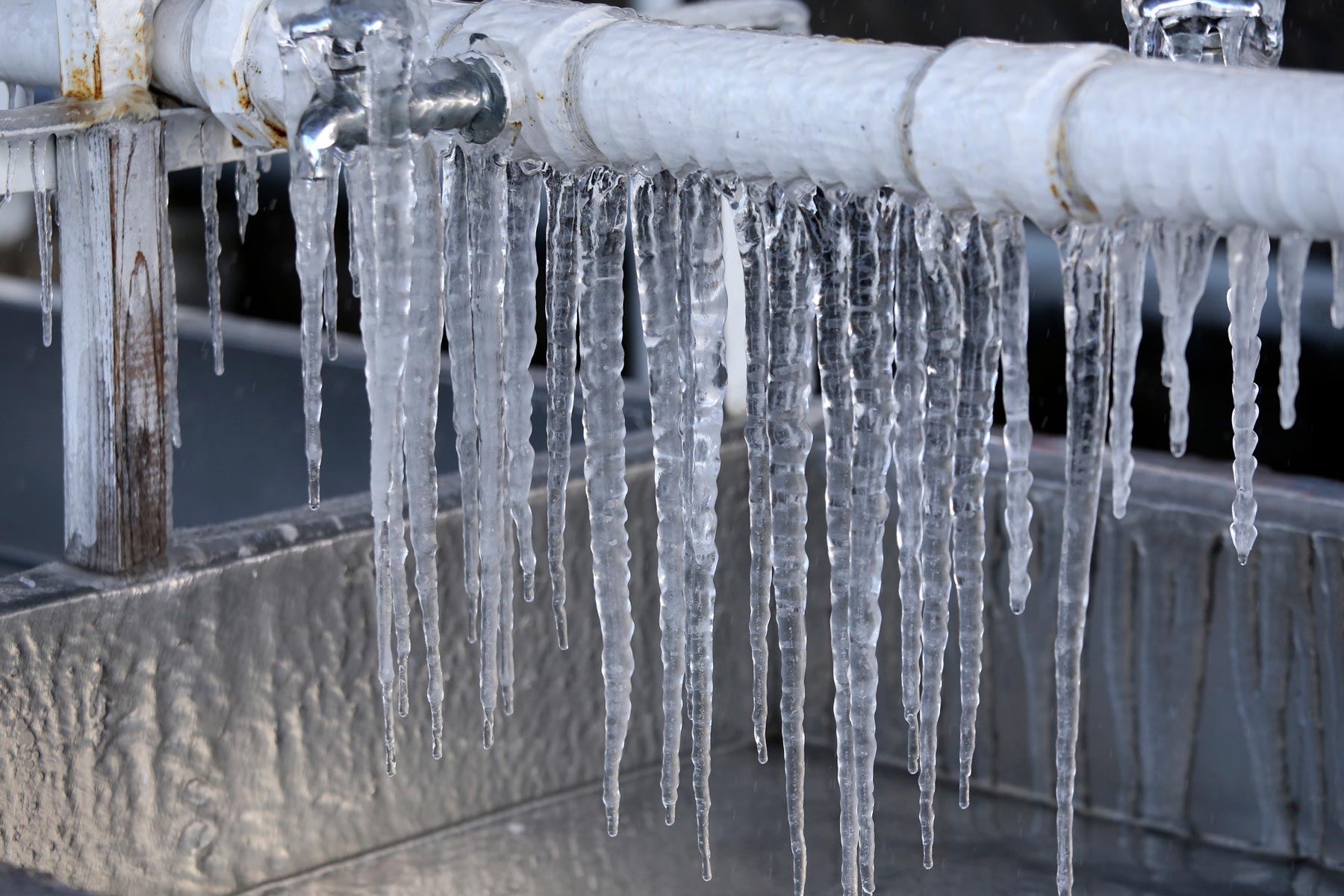Protect Against Frozen Pipes in Winter: Professional Strategies
Protect Against Frozen Pipes in Winter: Professional Strategies
Blog Article
Right here below you will discover a lot of first-rate information around How to prepare your home plumbing for winter weather.

Winter can wreak havoc on your pipes, particularly by freezing pipes. Here's just how to prevent it from occurring and what to do if it does.
Intro
As temperature levels decrease, the risk of frozen pipes boosts, potentially resulting in expensive fixings and water damages. Understanding how to prevent icy pipes is vital for home owners in chilly environments.
Avoidance Tips
Insulating at risk pipes
Cover pipelines in insulation sleeves or make use of warmth tape to protect them from freezing temperature levels. Focus on pipelines in unheated or exterior areas of the home.
Home heating techniques
Keep indoor spaces adequately heated, specifically areas with plumbing. Open cupboard doors to enable warm air to circulate around pipelines under sinks.
How to determine frozen pipelines
Look for reduced water flow from faucets, unusual odors or sounds from pipes, and visible frost on exposed pipelines.
Long-Term Solutions
Structural modifications
Take into consideration rerouting pipelines far from outside walls or unheated areas. Add extra insulation to attics, cellars, and crawl spaces.
Updating insulation
Buy high-grade insulation for pipes, attics, and walls. Appropriate insulation helps preserve consistent temperatures and reduces the threat of icy pipes.
Safeguarding Exterior Plumbing
Yard hoses and outdoor taps
Detach and drain yard hoses prior to wintertime. Set up frost-proof spigots or cover exterior taps with protected caps.
Comprehending Frozen Pipes
What creates pipelines to freeze?
Pipes freeze when exposed to temperature levels listed below 32 ° F (0 ° C) for expanded durations. As water inside the pipes freezes, it broadens, taxing the pipeline walls and potentially causing them to break.
Threats and problems
Frozen pipes can lead to water supply disturbances, residential property damage, and pricey repair services. Ruptured pipelines can flood homes and create substantial structural damage.
Indicators of Frozen Pipes
Determining frozen pipes early can avoid them from breaking.
What to Do If Your Pipelines Freeze
Immediate activities to take
If you think icy pipelines, maintain taps open to relieve stress as the ice melts. Utilize a hairdryer or towels taken in warm water to thaw pipelines gradually.
Verdict
Preventing icy pipes needs positive actions and quick reactions. By comprehending the reasons, signs, and safety nets, property owners can secure their plumbing throughout cold weather.
Helpful Tips to Prevent Frozen Pipes this Winter
UNDERSTANDING THE BASICS: WHY PIPES FREEZE AND WHY IT’S A PROBLEM
Water freezing inside pipes is common during the winter months, but understanding why pipes freeze, and the potential problems it can cause is crucial in preventing such incidents. This section will delve into the basics of why pipes freeze and the associated problems that may arise.
THE SCIENCE BEHIND FROZEN PIPES
When water reaches freezing temperatures, it undergoes a physical transformation and solidifies into ice. This expansion of water as it freezes is the primary reason pipes can burst. As the water inside the pipe freezes, it expands, creating immense pressure on the walls. If the pressure becomes too great, the pipe can crack or rupture, leading to leaks and water damage.
FACTORS THAT CONTRIBUTE TO PIPE FREEZING
Low Temperatures: Extremely cold weather, especially below freezing, increases the risk of pipes freezing. Uninsulated or Poorly Insulated Pipes: Pipes located in unheated areas, such as basements, crawl spaces, or attics, are more prone to freezing. Insufficient insulation or lack of insulation altogether exacerbates the problem. Exterior Wall Exposure: Pipes running along exterior walls are susceptible to freezing as they encounter colder temperatures outside. Lack of Heating or Temperature Regulation: Inadequate heating or inconsistent temperature control in your home can contribute to frozen pipes. PROBLEMS CAUSED BY FROZEN PIPES
- Pipe Bursting: As mentioned earlier, the expansion of water as it freezes can cause pipes to burst, resulting in significant water damage.
- Water Damage: When pipes burst, it can lead to flooding and water damage to your property, including walls, ceilings, flooring, and personal belongings.
- Structural Damage: Prolonged exposure to water from burst pipes can compromise the structural integrity of your home, leading to costly repairs.
- Mold and Mildew Growth: Excess moisture from water damage can create a favorable environment for mold and mildew growth, posing health risks to occupants.
- Disrupted Water Supply: Frozen pipes can also result in a complete or partial loss of water supply until the issue is resolved.
WHY CERTAIN PIPES ARE MORE PRONE TO FREEZING
- Location: Pipes located in unheated or poorly insulated areas, such as basements, crawl spaces, attics, or exterior walls, are at higher risk of freezing.
- Exterior Pipes: Outdoor pipes, such as those used for irrigation or exposed plumbing, are particularly vulnerable to freezing as they are directly exposed to the elements.
- Supply Lines: Pipes that carry water from the main water supply into your home, including the main water line, are critical to protect as freezing in these lines can affect your entire plumbing system.
- Underground Pipes: Pipes buried underground, such as those connected to sprinkler systems or outdoor faucets, can be susceptible to freezing if not properly insulated.
https://busybusy.com/blog/helpful-tips-to-prevent-frozen-pipes-this-winter/

I'm very serious about Prevent Frozen Pipes and I hope you enjoyed reading the blog posting. Those who enjoyed reading our blog posting kindly be sure to share it. Many thanks for being here. Please come by our site back soon.
Request Free Estimate Report this page